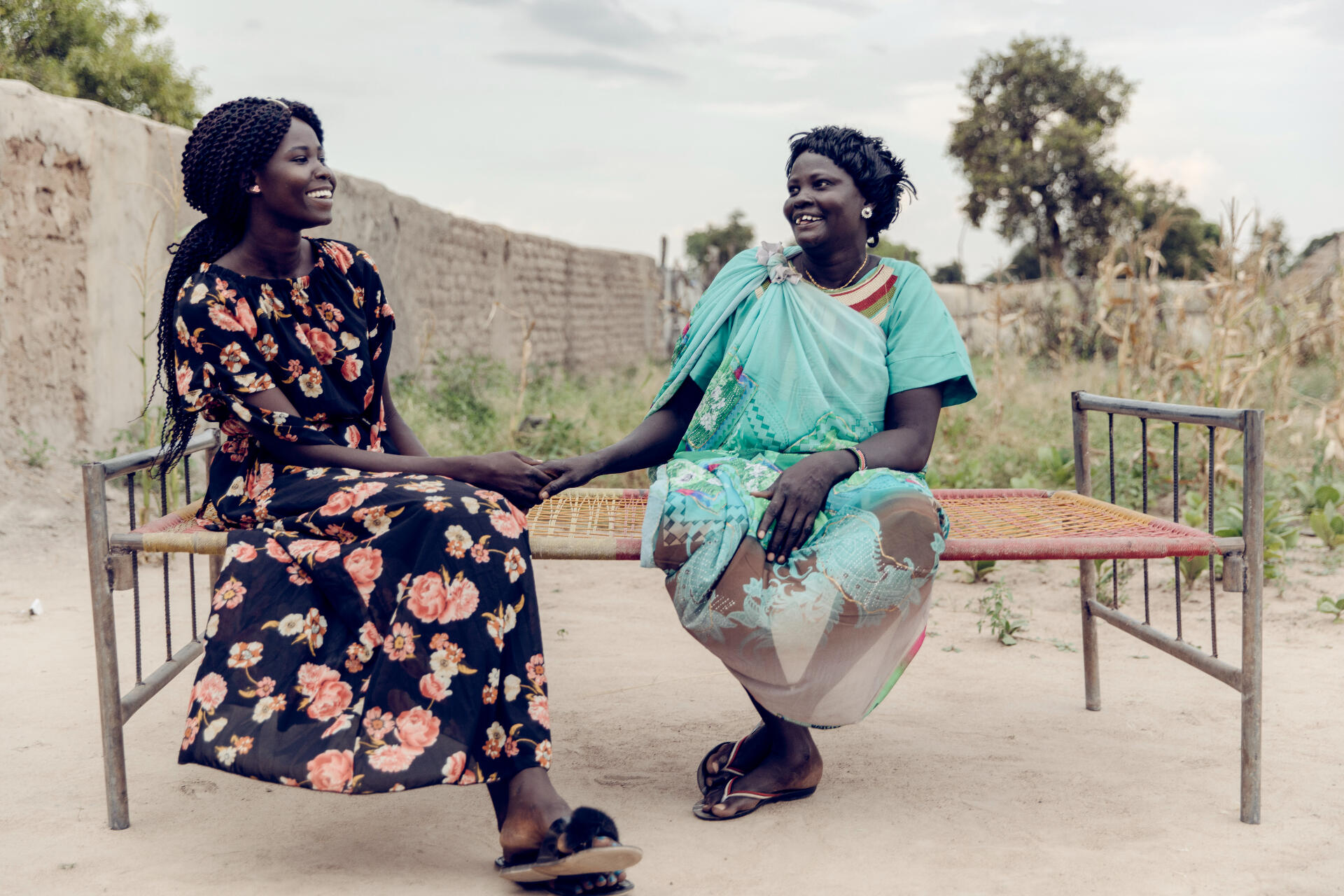At the IRC, we commit to equality for staff, clients and partners by pursuing a feminist approach to delivering humanitarian aid and fostering an inclusive organizational culture where diversity is championed and represented at all leadership levels.
Our Gender, Equality, Diversity and Inclusion (GEDI) approach aims to deliver equal outcomes and transformational change to women, girls and marginalized groups by strengthening our people, operations, program quality and influencing efforts through an intersectional feminist lens.
Our Sexual and Reproductive Health and Rights programs support client-centered, rights-based delivery of comprehensive sexual and reproductive health care. This includes maternal and newborn care, contraception, comprehensive abortion care, clinical care for survivors of gender-based violence, and the prevention and treatment of sexually transmitted infections.
Our Violence Prevention and Response programs prevent and respond to violence against women, children and other vulnerable groups.
Our Education programs support children, young people and caregivers in crisis settings by delivering quality, evidence-based learning opportunities, often alongside the IRC's livelihood, health and protection programming.
At the IRC, diverse clients, partners and staff have the power, voice and agency to shape programs and operations.
Our GEDI approach actively aims to end all forms of systemic discrimination.
Who we are
The IRC promotes an inclusive organizational culture where diversity is championed and represented at all leadership levels. We have zero tolerance for discrimination, harassment, bullying and retaliation in any form.
What we do
We design and deliver programs to maximize power for the communities we serve through effective collaboration with clients, partners and staff. We strive for equal outcomes for diverse populations by using our deep understanding of local power imbalances to ensure equitable access to services.
What we say and how we engage
Our organizational culture encourages open and honest conversations by ensuring all staff have equal access to internal communications. Our storytelling illustrates the resilience of the diverse people we serve, ensuring that the IRC’s client, staff and partner voices and experiences inform the organization’s priorities.
Find out more in the 2022 GEDI Action Plan report, summary and our one page progress report.
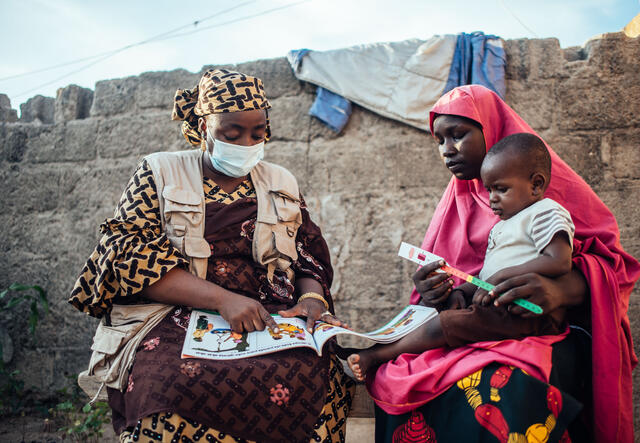
The IRC supports the delivery of comprehensive sexual and reproductive health care services in more than 27 countries. We provide maternal and newborn care, contraception, comprehensive abortion care, clinical care for survivors of gender-based violence, and prevention and treatment of sexually transmitted infections, including HIV, with a specific focus on supporting adolescent girls.
Our Sexual and Reproductive Health and Rights (SRHR) approach is client-centered and grounded in feminist principles, supporting the right of women and adolescent girls to make decisions about their health and well-being. To help achieve a high standard of sexual and reproductive health (SRH) and respect for women’s and girls’ rights, we work in partnership with civil society organizations and government agencies to deliver comprehensive SRH services, transform harmful gender norms, generate evidence and learning, and advocate for the rights of women and girls in humanitarian and fragile settings.
Learn more about our work supporting sexual and reproductive health and maternal and newborn health.
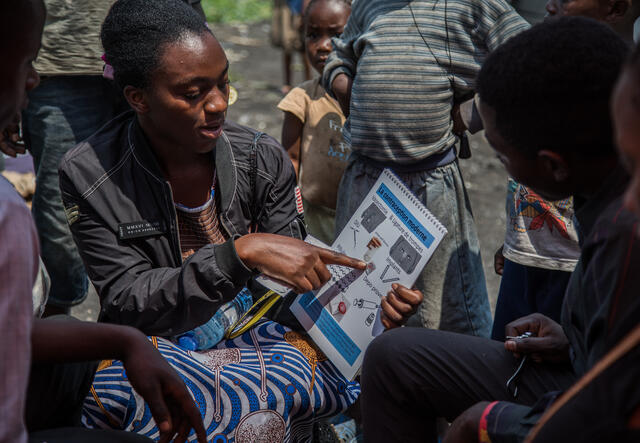
VPRU implements programming grounded on intersectional feminist analysis to prevent violence against women, girls, boys and other vulnerable groups, and responds to violence when it does occur. The VPRU seeks to reduce people’s vulnerability to violence, supports them in their recovery and promotes transformative work for a future free from violence.
Analysis of power and patriarchy with intersectional lenses is central to our work to defend, support and stand with the individuals, families and communities that we serve. We bring together specialized expertise in child protection, protection rule of law, and women’s protection and empowerment to design and implement solutions to prevent and respond to violence, in partnership with the people we serve.
VPRU also works in consortium with different organizations to implement programs on violence prevention and response, including the production of cutting-edge resources and research and evidence generation.
In every context, VPR programs seek out and work with the most vulnerable women, girls, men and boys. We support populations of all ages and backgrounds. We also know from evidence and experience that in most contexts women and children are disproportionately impacted by unequal power and are therefore at the greatest risk of violence.
Find out more about our gender-based violence responsenetwork and What Works to Prevent Violence program.
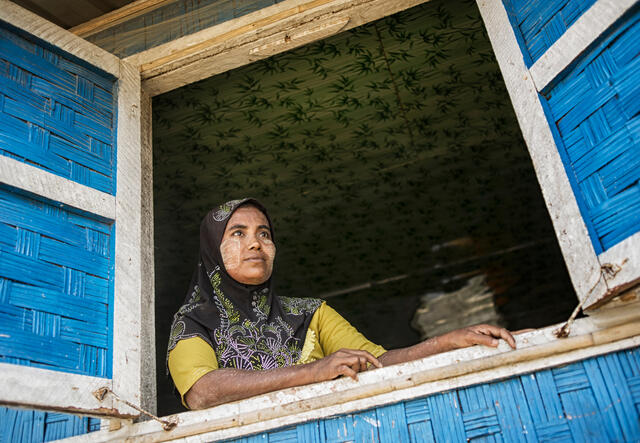
The IRC’s Education unit strengthens access to quality and safe learning opportunities for all children and young people in crisis-affected settings. Our investments in women’s economic empowerment, and the care sector in particular, provide employment opportunities and flexibility for women to enter and advance within the labor market.
The IRC's education programming reaches caregivers by integrating existing services across livelihoods, health, nutrition, children and women's protection programs. From designing flexible play spaces and preschools, to home visiting and parenting skills sessions, to supporting entrepreneurship and income generation programs, we provide culturally relevant services, resulting in multigenerational outcomes.
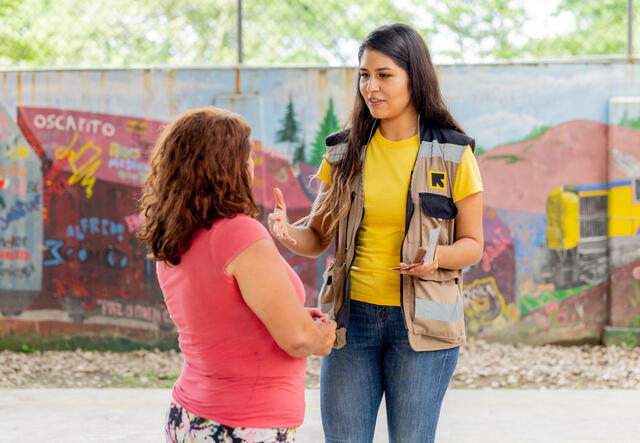
Ahlan Simsim: a parenting and child development program in the Middle East
After 12 years of conflict in Syria, refugee, migrant, displaced and host populations alike require unique solutions that uplift individuals and communities. Ahlan Simsim is a large-scale initiative that offers modular and flexible programs targeting caregivers of children ages 0 to 8 years. The program convenes groups of caregivers to improve skills related to child development, play and parenting. Ahlan Simsim promotes resilience and fosters long term solutions for paid and unpaid caregivers, as well as levels the playing field to reduce inequalities for girls later in life.
Find out more about the impact of these programs, and others like it such as Gindegi Goron in Bangladesh.
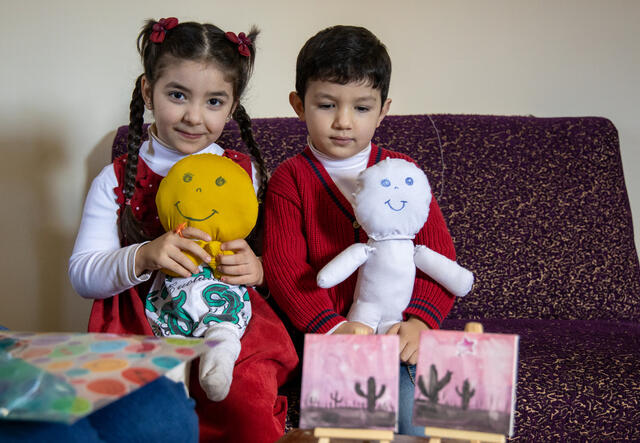
Location: Kigali Convention Centre / Room MH2.2
Date & Time: Wednesday, July 19th from 11:30am to 1pm CAT
Join us for an interactive and powerful session on organizational culture change! Our event focuses on organizational culture change and how the IRC has made meaningful internal progress on our Gender, Equality, Diversity and Inclusion (GEDI) priorities by giving space and power to staff and partners.
In this 90-minute deep dive session, you will have a unique opportunity to engage and connect with our dynamic colleagues from Women@Work, Get Moving and our partner, Raising Voices. They will share on building a gender inclusive culture and supportive workplace environment, free from harassment and abuse. Please bring your questions to us!
Please register for our in-person event here.
